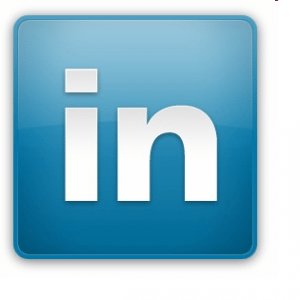Choosing the Right Domain Name

Choosing the best domain name for your website is an important decision, as your domain name can attract or repel business: both for its impact on Search Engine Optimization and on the impression it makes on potential customers. A good domain name is the digital equivalent of a potential business contact approaching you looking put together, smiling with hand extended, instead of disheveled, confused, and dropping papers and notebooks. So what are some ways to make sure your initial approach is more Harvey Specter and less Saul Goodman?
1. Be Unique
This is an obvious one, but it’s an important place to start. Of course your domain name has to be technically unique, or you won’t be able to register it but it should also be unique in the sense that it won’t be easily confused with an existing, established website. In 2013, when Netflix announced that it was spinning off its DVD-by-mail service under the name Quickster, not only was it ill-conceived from a business standpoint, it was also a very poor choice of domain name, as there was already a web-based film-rental website called Flixster.com. Not only were they alienating their existing customer base, but a poorly chosen domain name would probably have ended up driving customers to one of their competitors. Fortunately Quickster.com was scrapped before launch, and Netflix.com is still the place to rent obscure French art films by mail, while binge-watching The A-Team through their streaming services. We can all sleep soundly tonight.
2. Gotta have .com
The number of top-level domains (.com, .net, .org, etc.) continues to grow, but when most web users type in the address for a site, they invariably use the .com extension. This means that no matter how perfect a domain name might be, if it’s only available in .net or .biz, or – let’s be honest – anything but .com, look for another one. Remember that you only have one chance at a first impression. Trying to find your website and getting a generic, advertisement-laden parking page is like a customer thinking they’re going to meet you, and instead meeting a guy twirling an arrow-shaped sign advertising discount electronics. Not having a .com domain is setting potential customers up to meet sign-twirling guy.
It’s also a good idea, if you can get the .com, to purchase .mobi, .net, .co, and .biz, and, depending on your business there may be others worth picking up as well. After all, if you don’t, your competitors might as a way to sow confusion or outright steal prospects who are looking for you.
3. Let it help you rank better
Your web address is a very important factor in search engine rankings, so whenever possible, use your most important keywords in it. This is often easier if you’re first starting out and naming your business because you can create a name that leverages your keywords (that’s why our business name is Sales Renewal). For an existing business there’s an obvious desire to use your business name as your domain name, and often, but not always, that’s the right thing to do (this stuff gets complicated). Regardless of which way you go on a keyword vs. brand-oriented domain name, the good news is that you can use the redirection trick we discuss next to get the best of both worlds.
4. To Hyphenate or Not to Hyphenate?
If your domain name is comprised of more than one word, you have to answer the difficult question of whether to smoosh all those words together, or to hyphenate them. Each has its pros and cons. The un-hyphenated version is much easier to speak aloud and to type (instructing people to go to “my new website dot com” as opposed to “my dash new dash website dot com”), but is much harder to read, as Smug Marketer Sam nicely illustrates in today’s SalesMemes. Do you read bringslaughter.com as BringsLaughter.com or BringSlaughter.com? Your response may be reported to your local mental health authorities.
If humans sometimes have a difficult time properly dividing the words of your web address, you can be sure that search engines will have the same troubles. Since properly parsing your domain name will contribute to your search engine rankings, that’s a factor worth considering as well.
We believe your best option is to purchase both, and set up a permanent redirect from the un-hyphenated version to the hyphenated version. It combines the ease of communicating and typing the un-hyphenated URL with the ability for both humans and search engines to most easily read/parse the hyphenated version.
If you can only get the hyphenated version of a domain name… don’t.
5. Wee Cann’t Speel Withowt Spellchek
There are some words that most people – even those with a high level of education and/or intelligence – have trouble spelling. If you run a cocktail bar called The Fuchsia Daiquiri, I weep for you. If your business is related to one of these difficult-to-spell words, either go with the pure keyword approach – if, for example, you live in Asheville, North Carolina, instead of registering FuchsiaDaiquiri.com, you might want to go for the domain name AshevilleCocktailBar.com – or be sure to purchase all the common misspellings so people don’t meet that sign-twirler again.
On a similar note, if your domain includes words with alternate valid spellings (especially if you’re hoping to attract a diverse range of customers), be sure to purchase those domains as well. For example, if you purchase TheColorGray.com, you’ll also want to pick up TheColorGrey.com, TheColourGrey.com, and TheColourGray.com.
There are a lot of lists of useful tools that might help you with choosing a domain name (like this one and that one). If you’d like some expert advice choosing a domain name to grow your sales, contact us and we’ll make sure Smug Marketer Sam doesn’t answer the phone.
Sales Renewal’s insight:
Choosing the best domain name for your website is an important decision, as your domain name can attract or repel business: both for its impact on Search Engine Optimization and on the impression it makes on potential customers.





